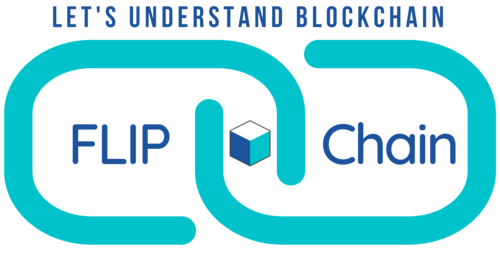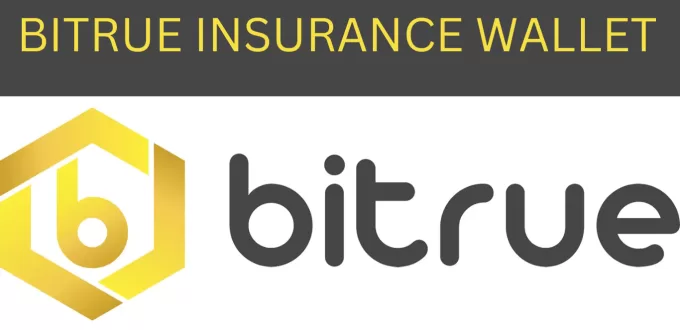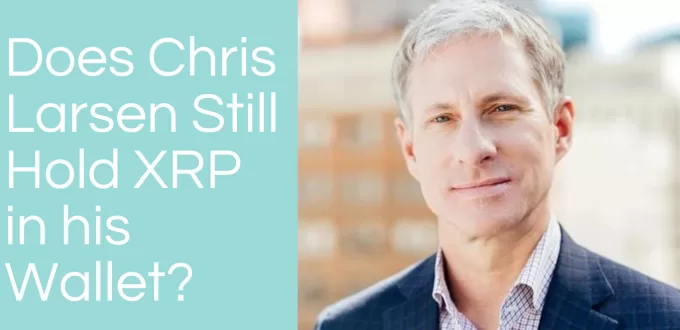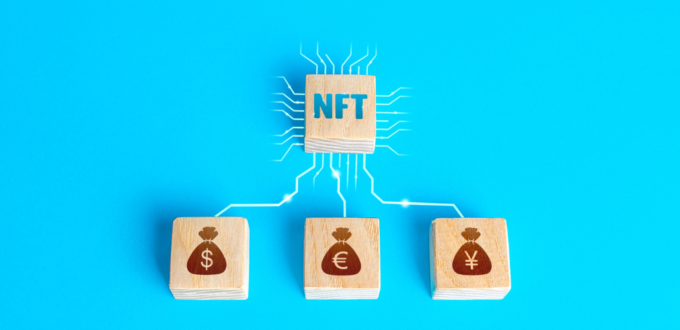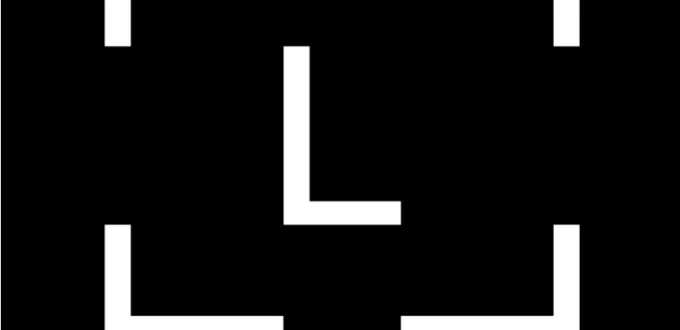Blockchain is a digital ledger that stores data and transactions across a chain of blocks. With every new transaction, new blocks are added to the chain. Furthermore, the data stored is duplicated and distributed across the chain of blocks. This makes blockchain, robust, immutable, and almost impossible to hack.
Taking into account the capability and efficiency of blockchain and the rising need for IT security in various business domains (including healthcare), organizations are thereby choosing blockchain as the first choice of the underlying technology to build any new product.
Although a lot of big players like Oracle and Infosys are leading the space in digitizing healthcare workflows with the help of blockchain, there are a plethora of startups too, that are innovating constantly to solve real-world healthcare problems by leveraging blockchain. Due to a sudden realization of the power of blockchain in the healthcare industry, technology companies are facing a shortage of qualified professionals in the market who can take up these roles. This problem is currently being experienced across the globe.
Let’s try to analyze various blockchain jobs for doctors and pharmacists currently in demand.
Roles/Career Opportunities for a Pharmacist and Doctors in the Blockchain Industry
By now, it is quite evident that there is a market for blockchain in healthcare and the industry needs the right individuals to fill up these roles. Following are the various roles a pharmacist and doctors can fulfill in the blockchain industry:-
1) Product Analyst/Business Analyst/Product Owner/Project Manager
IT Product Companies creating Electronic Medical Records, Supply Chain Software, Clinical Decision Support Systems (CDSS), Clinical Trials software, etc. on the blockchain, need to be prepared to face the most difficult customers in a healthcare setup, i.e. doctors and pharmacists.
This problem creates the following 2 challenges for any IT company dealing with a healthcare client:-
a) Requirement Gathering
Failure to meet the requirements of the end user is the biggest reason for an IT products to fail. This is due to the fact; It’s not really a cup of cake to understand and pen down clinical workflows. Further, getting these workflows from a doctor (working with a healthcare client) is a daunting task.
Easy Crackdown
An easy way for an IT company to crack these difficult customers is to hire doctors and pharmacists and let them deal with the healthcare client directly. Healthcare end users feel comfortable talking to a functional expert with a medical background from the IT Company, rather than an engineer. Therefore a doctor or a pharmacist only can execute the task efficiently for an IT company.
b) Adoption of the Product
The second quite significant reason, why an IT product fails in a healthcare setup is due to lack of adoption. The IT product should assist the healthcare end user with his/her day-to-day work rather than making it more complicated. Poor product design becomes a big hindrance in the adoption.
Easy Crackdown
Pharmacists and doctors understand the clinical workflows and associated complications. They are also aware of the best clinical practices in a healthcare setup. Thereby it makes sense for these experts to pen down the specifications for the developers, to code the product. Further, if these healthcare medical functional experts participate throughout the product development lifecycle, the adoption of the product increases manifold.
Various studies conducted by Cerner, EPIC, and Multum attest this fact.
One such good example of a pharmacist working as a Business Analyst is Mandeep Singh
2) IT Product Support/ Testing and Quality Control/Research and Development
Once the healthcare IT product is ready and is used by healthcare clients, there shall be a need for frequent bug fixes, product enhancement, and a product development roadmap. Since these tasks again require interacting with the healthcare end users, doctors, and pharmacists, employed by IT companies shall be able to execute the task efficiently.
Medblocks and XRP Healthcare for example are Healthcare Blockchain companies, where the majority of team members are either clinicians or allied healthcare professionals.
3) Medical/Healthcare Blockchain Content Writers and Journalists
What doctors and pharmacists did for WebMD.com is what they can also do for healthcare blockchain content websites. Healthcare professionals with a passion for technology and creative writing can do wonders in this field. Various websites like Politico.com, muckrack.com, blockchainhealthcaretoday.com need a workforce with background in health and passion in technology.
John Russo Jr. (Pharm D) for example, a pharmacist, is the editorial chief of blockchainhealthcaretoday.com. Isaac Oni is another such example who is a pharmacist and a freelance blockchain content writer.
4) Teachers/ Professors/ Educators
The demand for blockchain technology as an add-on subject amongst healthcare students is becoming a norm.
Healthcare professionals who have acquired knowledge either through certifications or by working for considerable years in the blockchain industry can take up the role of teachers/professors in universities, and colleges, or educate the masses via a YouTube channel.
Dr. SB Goyal and Gurdal Ertek are 2 examples of healthcare professionals on a mission of educating their students on the blockchain
5) Management Consultants
Healthcare organizations often look out for industry experts to help them with solutions that can transform their processes and workflows and help scale their business. The solutions provided by management consultants, often have a considerable weightage for the use of technology as a means to achieve the end results.
Since most of the new technologies are being built on blockchain, thereby healthcare clients, these days have an affinity for evaluating such software products. They are aware of the fact that blockchain technology is quite robust and scalable. Further they believe that the healthcare data if stored on blockchain is quite safer when compared to the existing databases.
Looking at the industry requirement, top consulting firms like EY1https://www.ey.com/en_ae/consulting/blockchain-consulting-services, Accenture2accenture.com/ae-en/services/blockchain-index, and BCG3https://www.bcg.com/capabilities/digital-technology-data/blockchain have constituted a dedicated blockchain consulting vertical.
This is where doctors and pharmacists with an understanding of healthcare workflows and blockchain, can step into the role of healthcare technology management consultants.
6) Healthcare Provider/Payor, IT Strategist
A lot of healthcare organizations like hospitals, healthcare insurance companies, laboratories, etc. believe in taking its team help to identify the problem and thereby find solutions for it. They do not believe in outsourcing to management consultants. As per them, their internal team is skilled enough to understand the day-to-day problems and can provide organization-specific solutions.
For developing such an ecosystem, healthcare organizations require professionals with healthcare and technology background who can understand the problem statement and suggest solutions by leveraging the use of technology. Therefore while evaluating solutions, these healthcare organizations need experts/strategists on their side to select the right technology vendor. This is where doctors and pharmacists with an interest in IT fit into the role.
7) Public Health IT Expert
The use of blockchain in public health is recently gaining a lot of traction. Data once stored on the blockchain is saved for ever and is hard to delete.
Healthcare funding, in the developing countries is secured based on forged/tampered data, recorded on non-blockchain databases. Due to this, the end results are never achieved in these countries. This is the primary reason why public health experts want the data to be recorded on blockchain. This will make the data counterfeit-proof and hence will help in accurate decision-making.
This is where doctors and pharmacists, experts in the public health domain and blockchain can fit into the role and help transform the infrastructure.
One such example of a blockchain solution present on the blockchain is E-Estonia Public Health Records4https://e-estonia.com/solutions/healthcare/e-health-records/. The team behind this project consists of doctors, pharmacists and talented developers.
8) Developers and Cybersecurity Specialists
Doctors and Pharmacists having an epitome passion for technology and cybersecurity, can get trained on blockchain security with the help of certifications and classroom programs and thereby start working as developers and cybersecurity specialists. Getting the first job as developer or cybersecurity specialist becomes quite easy, if your resume lists a portfolio of projects. Inorder, to build your portfolio, start working on your assignments via Flex Jobs website.
Abdul Kader and Mr. Aidan Dolan are examples of individuals having a passion for both health as well as blockchain development and cybersecurity.
9) Sales and Marketing
Just like doctors and pharmacists help pharmaceutical companies market their products, similarly healthcare blockchain companies need healthcare professionals to create sales pitches for their sales staff and manage marketing campaigns.
Why only Doctors, Pharmacists and Allied Healthcare Professionals for this role?
No one understands the healthcare ecosystem better than healthcare professionals. They exactly know what a consumer thinks and wants, while choosing a healthcare product or a service. Therefore, individuals with this specific skillset, excel in this role as compared to the individuals with a non-healthcare background.
Elizabeth Donaghy and Darry Glover are few examples of healthcare professionals handling the sales and marketing vertical in healthcare blockchain organizations.
10) Blockchain Healthcare Data Analyst
There are a lot of data analysts present in the market who understand numbers and can present the data on dashboards. However, analysts who specifically understand both healthcare and numbers are few and therefore high in demand these days.
The expectation from healthcare data analysts is usually quite high. Their job profile includes presenting numbers/KPIs on the dashboard and also guide the strategy team in taking meaningful decisions. Doctors and pharmacists have an important role to serve in a healthcare organization, as blockchain healthcare data analyst.
Dr. Ayman Al-Layla is one such example leading Clinical Informatics and Data Analysis in Emirates Health Services.
11) Chief Medical Officer of a Blockchain Company
Blockchain companies focusing on healthcare clients need a visionary leader with strong understanding of healthcare workflows, healthcare business problems, solid understanding of the psychology of healthcare clients and ability to visualize new avenues where the organization can invest in the next 5-10 years.
This is where doctors can fulfill the role of Chief Medical Office in a healthcare blockchain company and guide the organization to the path of success.
Philip Xiu is one such example of a Chief Medical Officer leading Elsevier.
Let’s take a pause and echo the fact that the number of blockchain jobs for Doctors and Pharmacists is increasing. Therefore, it’s the right time to switch your career to this new ecosystem.
An Interview with Healthcare Professionals – Blockchain jobs for Doctors and Pharmacists
Flipthechain.com team is fortunate enough to interview the following personalities and share their thoughts on blockchain as a career option for healthcare professionals:-
An interview with Dr. Erika Beerbower (PharmD)
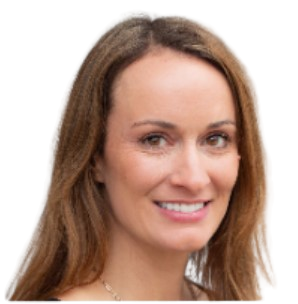
Dr. Erika Beerbower is a drug information pharmacist who started her career in hospital and IV pharmacy. Thereafter, she started working as a clinical content specialist for a clinical decision support database (formerly IBM Watson Health). Erika initially was interested in blockchain from cryptocurrency and then realized the potential it had for the healthcare system in the US. During her tenure with IBM, she got a chance to work on blockchain projects.
She is an ambassador of Blockchain in Healthcare Today (Colorado chapter) and Co-Chairman of Hyperledger in Healthcare Special Interest Group. Dr. Erika Beerbower has also served as a member of standards organization focusing on blockchain in healthcare.
She is quite passionate about blockchain and through literature evaluation and serving as a subject matter expert, has provided guidance on new projects. As far as getting into the web3 space, her advice is to look out for organizations interested in utilizing new technology to improve patient care, provider satisfaction, and improving interoperability between various software solutions. Attending blockchain in healthcare conferences is another way to get yourself out there in the space.
Anyone looking for exploring various opportunities in blockchain and healthcare can become a participant of the Hyperledger in healthcare special interest group.
An interview with Mr. Aidan Dolan
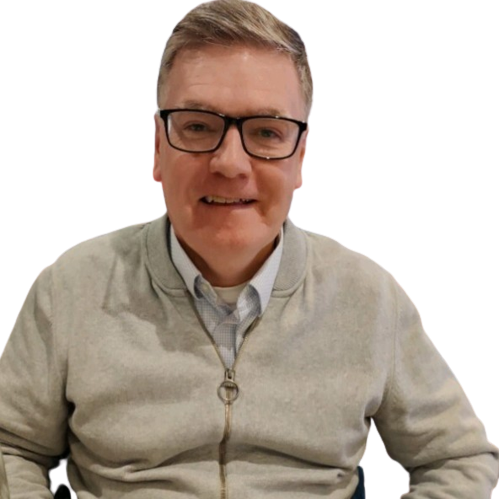
Aidan Dolan is a pharmacist and a blockchain enthusiast, working as a data scientist and automation expert in TCP Homecare. He has splendid credentials as a blockchain developer from the European Tech School. During the interview, Aidan Dolan shared his thoughts on blockchain.
In his day-to-day conversation with his peers, he educates them about the used cases of blockchain in healthcare. He further adds that the majority of individuals don’t see any difference between blockchain and cryptos.
Aidan Dolan believes that blockchain has the potential to create a new market/ecosystem of self-sovereign identity which can lead to exceptional clinical outcomes for patients. Aidan Dolan senses Web 3.0 as the tipping point for the new future.
He is highly inspired by Satoshi’s thoughts on decentralized and digital autonomous system. He thereby foresees the work that can be done in interoperability and time stamped technology. These technologies can help in eliminating the middle man from the system and make the whole ecosystem efficient and trustworthy.
As per him, the progress in healthcare blockchain industry is surpassing the speed of clinical regulations, which is a good sign for the industry.
Aidan Dolan believes that doctors and pharmacists have a bigger role to play in guiding the industry. Healthcare professionals taking up these job roles, will lead to mass adoption of healthcare blockchain technology in the market.
An interview with Isaac Oni

Isaac Oni is a pharmacist and a blockchain content writer. Topics like NFTs, tokenization, metaverse and used cases of blockchain and healthcare are few of his expertise.
He is quite motivated about the new blockchain ecosystem and visualizes a ton of innovation happening in the next 5-10 years. This is the reason, he believes, individuals with healthcare background, specifically pharmacist and doctors have a bigger role to play in the industry, not only as content writers but also as journalists in big healthcare magazine and blog houses.
Certifications to Accelerate a Pharmacist’s and Doctor’s Career in Blockchain
Having a background in healthcare and a passion for blockchain technology only, is not enough to make a difference in the industry. You need to have valid credentials in the blockchain space, which can help you easily grab a lucrative job in the healthcare industry.
There are a few websites offering certification courses for healthcare individuals which are essential for excelling in blockchain jobs for doctors and pharmacists:-
1) 101 Blockchains – Health 3.0 – Blockchain In Healthcare Masterclass
2) Udemy – Blockchain and Healthcare for Non Technical Minds
3) Blockchain Training Alliance – Blockchain for Healthcare Professionals
However, if you are interested in On Campus learning, University of Gibraltar – Britain is offering a 6 days Certification program on Competence in Blockchain and Smart Contracts. This course is specially designed for individuals for non technical background. During the course, the student shall learn real life used cases of blockchain and smart contracts, which he/she can apply in their job or business.
Blockchain Jobs for Doctors and Pharmacists
Following are the various blockchain jobs for doctors and pharmacists available in the market
| Job Type | Job Link |
|---|---|
| Blockchain Data Analytics | – Data Solutions Analyst at HealthVerity – Data Scientist at Health-Chain |
| Blockchain Sales and Marketing | – Inside Sales Lead Generation at BurstIQ – Senior Proposal (RFP) Specialist at HealthVerity – Senior RFP Specialist at HealthVerity – Director, Product Marketing at HealthVerity |
| Blockchain Business Analyst and Educator | – Assistant/Associate Professor – Healthcare Business Analytics at University of Arkansas – Healthcare Business Analyst at AssureCare |
| Blockchain Project Manager | – Project Manager at AssureCare |
| Blockchain Management Consultants | – Healthcare Technology Consultants at Alvarez & Marsal – Solutions Consultant at Merative – Analytic Consultant at Merative |
| Blockchain Product Manager | – Product Manager at Dovetail Lab |
| Blockchain Leadership Position | – Regional Vice President at Health-Chain |
| Blockchain Sales Engineer | – eClinical Sales Engineer at Merative |
References
